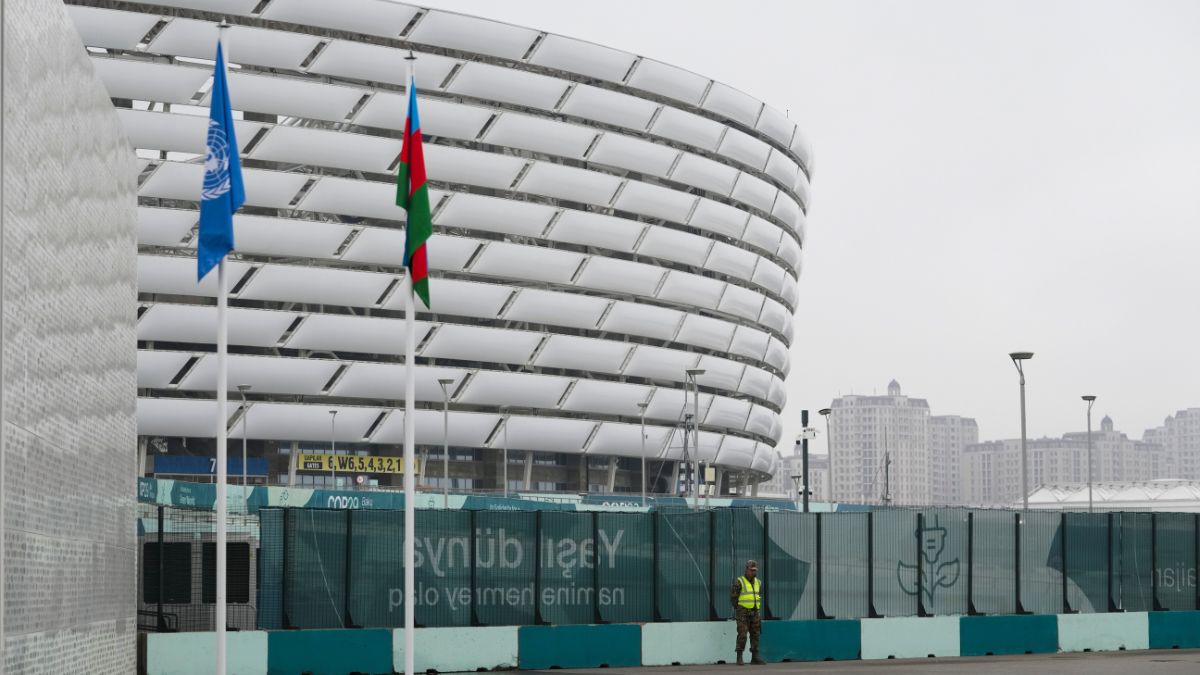Saudi delegate accused of altering official Cop29 negotiating text, raising transparency concerns
A Saudi Arabian delegate has been accused of directly editing an official Cop29 negotiating text, bypassing standard protocols where texts are shared as non-editable PDFs for collective discussion, the Guardian reported.
According to reports, experts warn that allowing one party to alter documents independently undermines the integrity of the summit.
Saudi Arabia, often criticised for obstructing climate action at UN summits, has faced accusations of being a “wrecking ball” at Cop29, due to its stance on limiting fossil fuel usage. Critics say the incident highlights the need for stricter safeguards in climate negotiations.
Meanwhile, United Nations talks dissolved into factions Saturday after developing nations rejected what they called too little money to deal with climate change,
As workers began to dismantle the furnishings of the climate conference called COP29 in Baku, Azerbaijan, negotiators went from one big room where everyone tried to hash out a deal together into several separate huddles of upset nations. Hallway talk oscillated between hope for shuttle diplomacy to bridge the gap and kicking the can down the road to sometime next year. Negotiators and analysts had mostly given up hope that the host presidency would get the job done.
It’s a fight about big money, but the question dividing them is: Is it big enough?
A climate cash deal is still elusive
Developing nations and United Nations reports say there’s a need for $1.3 trillion to help adapt to droughts, floods, rising seas and extreme heat, pay for losses and damages caused by extreme weather, and transition their energy systems away from planet-warming fossil fuels and toward clean energy. The number would replace an $100 billion-a-year deal for climate cash that’s expiring.
After an initial proposal of $250 billion a year was soundly rejected, the Azerbaijan presidency brewed up a new rough draft of $300 billion, that was never formally presented, but also dismissed roundly by African nations and small island states, according to messages relayed from inside. Then a group of negotiators from the Least Developed Countries bloc and the Alliance of Small Island States left the room.
Impact Shorts
More ShortsThe “current deal is unacceptable for us. We need to speak to other developing countries and decide what to do,” Evans Njewa, the chair of the LDC group, said. When asked if the walkout was a protest, Colombia environment minister Susana Mohamed told The Associated Press: “I would call this dissatisfaction, (we are) highly dissatisfied."
With tensions high, climate activists heckled United States climate envoy John Podesta as he left the meeting room. They accused the U.S. of not paying its fair share and having “a legacy of burning up the planet.”
The one thing uniting the separate rooms was unhappiness with the way the presidency was running the conference, especially developing nations who said they felt ignored.
There’s “incredible anger and frustration toward the presidency and the way it behaved,” said longtime conference veteran analyst Alden Meyer of the European think tank E3G.
What’s next? Success or delay
The meeting is already one day past its scheduled end date and the longer it goes the higher the chance that enough delegates will leave that it will not have a quorum to continue, which happened to the biodiversity COP last month in Cali, Colombia.
Meyer said there is still hope that someone can bridge the gap between the separate parties, find common ground and then hand the presidency a compromise on a sliver platter.
If not, there’s two possibilities, Meyer said. One is that the meeting could be adjourned temporarily until next January — before Donald Trump takes power in the United States. And the other is that some kind of small agreement — not on finance — could be made and everything financial gets pushed to next year’s COP in Belem, Brazil. But that meeting is already jam-packed with importance because it’s when the world is supposed to increase its carbon pollution-cutting efforts.
Teresa Anderson, the global lead on climate justice at Action Aid, said that in order to get a deal, “the presidency has to put something far better on the table.”
Speaking late Sunday, Adonia Ayebare, the chair of the G77 and China negotiating bloc, said the group was still consulting.
“The process is in the hands of the presidency,” he said.
With inputs from agencies.
)